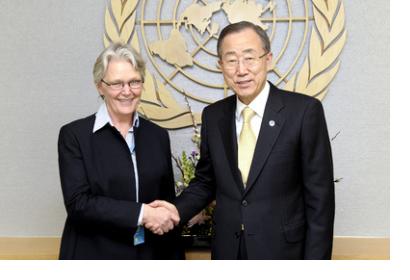In a recent press release, the United Nations Office for Disaster Risk Reduction cited UN Secretary General Ban Ki-moon who warned about economic losses from disasters. "The United Nations today issued a stark warning to the world’s business community that economic losses linked to disasters are “out of control” and will continue to escalate unless disaster risk management becomes a core part of business investment strategies."
It continues citing the Secretary General: "We have carried out a thorough review of disaster losses at national level and it is clear that direct losses from floods, earthquakes and drought have been under-estimated by at least 50%. So far this century, direct losses from disasters are in the range of $2.5 trillion. Economic losses from disasters are out of control and can only be reduced in partnership with the private sector which is responsible for 70% to 85% of all investment worldwide in new buildings, industry and small to medium sized enterprises. The principles of disaster risk reduction must be taught at business schools and become part of the investor’s mind-set.
On 15 May 2013, UNISDR had released a new report, Global Assessment Report (GAR) 13, which is built on important new data sets including reviews of national disaster loss data bases in 40 countries, survey responses from 1,300 SMEs in disaster-prone locations in the Americas, and a review of risk management in 14 major corporations including ABB, ARUP, BG Group, Citigroup, General Electric, HCC Group, HIRCO Group, Hitachi Group, InterContinental Hotels Group, Nestlé, NTT East Corporation, Roche, Shapoorhi Pallonji&Co. Ltd., and Walmart.
A new global risk model developed by UNISDR and partners, demonstrates that annual average losses from just earthquakes and cyclonic winds can be expected to be in the range of $180 billion this century. The report makes a strong case that globalization, the search for lower costs, higher productivity, and just-in-time delivery are driving business into hazard-prone locations with little or no consideration of the consequences on global supply chains.

